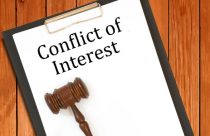Should Journal Editors Avoid a Possible Conflict of Interest?

Although “follow the money” describes most conflicts of interest, some conflicts have nothing to do with money. Suppose you are a researcher who publishes papers regularly. And suppose you are also the editor of a research journal in your field. Does your position as an editor constitute a conflict of interest?
The answer is—maybe.
Does your position as editor involve making decisions about which papers are accepted and which are rejected? If so, this is a conflict of interest and should be reported. Why? Obviously, if you submit a paper to the journal you edit you would be making a decision on your own paper! This would be like a defendant at a trial serving as his own judge. In this case, the proper course is to not only disclose your position but to recuse yourself from decision making, having some impartial person appointed to serve in your place.
Even if you submit your paper to a journal other than the one you edit, disclosure is generally required. I suppose the declaration is intended to avoid the following scenario. You are the editor of one journal and submit a manuscript to a different journal. That journal editor assigns reviewers, supposedly “blind” reviewers but since your research is distinctive they almost certainly will deduce who the author is. Will the reviewers be tempted to give glowing reviews to your paper in order to improve their chances of submissions to the journal you edit? To have you “owe them one.”
This scenario may seem a bit far fetched. After all, it requires you the submitter to find out who the reviewers are so that you may reward or punish them in the future for good or bad reviews. To do this you would most likely either be in cahoots with the journal editor or be a really good detective. But at least if there is disclosure, there is less chance that either scenario will happen. Since the journal editor knows that you the submitter is also an editor, and knows that this is a sensitive position, he will be particularly careful to keep confidential such information as the reviewers’ identities. He will also take a hard look at the reviews to check for any bias.









